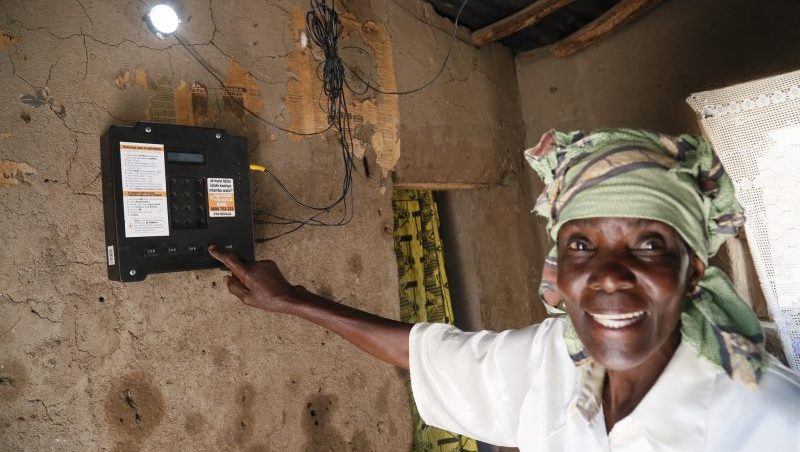A large number of people in Tanzania still live below the poverty line, and we are seeing the devastating effects of climate change, including more frequent and intense droughts and unpredictable rainfall.
This week, I’m attending the World Bank Spring Meetings in Washington DC with a message for World Bank officials from my home country: It’s vital that the World Bank, under its new president, keeps its promises to tackle climate change and becomes a real champion.
This would demonstrate the bank’s leadership on climate change and investments in clean energy, like off-grid solar power to reach the poorest.
One billion people still live in the dark, without any electricity. Energy poverty is particularly stark in rural and remote regions in Africa. In Tanzania, less than a fifth of people in rural areas have access to electricity. Off-grid renewables, like small solar systems, often reach rural communities more quickly and cheaply than a central grid, and are safer and cleaner than local alternatives like kerosene.
The Christian Council of Tanzania saw the benefit of this approach, and is working with Tearfund to pilot off-grid renewable projects and to advocate for greater government support. These kind of projects can improve people’s health, education, gender equality and income generation.
For example, solar power has also enabled basic computer classes to be held and has improved teacher retention rates in Tanzania’s rural areas. We have similarly seen how hydro mini-grids have improved health facilities, which with a reliable electricity supply can use microscopes and refrigerators for medicine storage.
A network of women entrepreneurs in Tanzania have substituted kerosene with solar lamps, using the savings for school fees, farming inputs and investment in businesses.
Rachel is a farmer and tailor in Makutupora in central Tanzania who bought a solar panel with a loan from a self-help group supported by Tearfund. Now that she has a solar light, she can work in the evenings, making clothes to sell to people in the village. By working three or four hours each evening, she has increased the family’s monthly income from 70–80,000 TZS ($31–35) to sometimes as much as 150,000 TZS ($66).
Global energy agency asked to stop normalising dangerous climate change
Off-grid renewables can help support small businesses, enabling them to open longer hours and thereby reach a higher number of customers, increasing profits. Ali, from the Dodoma region of central Tanzania, has used solar light to open his kiosk in the evenings, selling cattle medicines to farmers when they return from the fields. He’s seen his income more than double, enabling him to buy a plot of land on which he intends to build a house for his family.
We need to see much more investment in initiatives like this in Tanzania and scale them up. Business as usual won’t ensure that the poorest have clean energy. The World Bank has made steps to increase their investments in off-grid renewables to $600m in 2018, but this is still a small proportion of their overall energy budget.
We need the World Bank to develop a roadmap on how it will ramp up its investments to meet the demand for clean energy in African countries like mine and mainstream off-grid renewable energy into its energy portfolio. For example, the African Development Bank has set an ambitious strategy to achieve electricity access by 2025.
The World Bank’s investments send a crucial signal to other investors so it must set the direction to clean energy and energy for all.
Emmanuel Kimbe represents the Christian Council of Tanzania, a Tearfund partner
